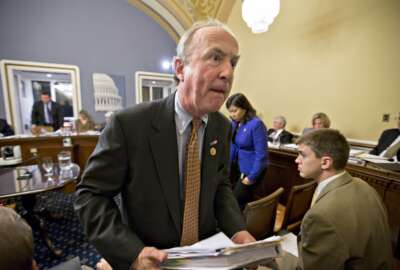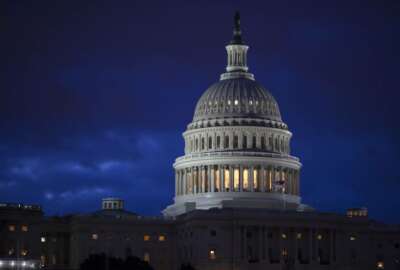
GOP says it can pass short-term spending without Democrats
Republicans say they will push a short-term spending bill keeping the government open through the House on Friday with only GOP votes, if necessary
WASHINGTON (AP) — Republicans said they would push a short-term spending bill — essential to keeping the government open — through the House Friday with only GOP votes, if necessary.
The brinkmanship came less than 30 hours before a midnight Friday deadline for a shutdown.
At the same time, a House GOP leader said late Thursday that there would be no vote on major GOP health care legislation until at least next week. That meant that on both the budget and health care fronts, there would be no milestone victories for Trump before Saturday, his 100th day as president.
“We’re working on the funding of government. We’re getting that through” on Friday, House Majority Leader Kevin McCarthy, R-Calif., said of the temporary spending measure.
Asked by reporters whether Republicans would have to pass the short-term bill without Democratic votes, McCarthy said, “Yeah.”
Democrats have threatened to oppose the temporary spending bill if there wasn’t a bipartisan deal on a $1 trillion measure financing the government through September. Final agreement on some loose ends in that massive measure has remained elusive.
Republicans had been hoping for Democratic support because a significant number of conservative GOP lawmakers often vote against spending legislation.
McCarthy told reporters late Thursday that the health care vote would not occur Friday or Saturday.
“As soon as we have the votes, we’ll vote on it,” he said after leaving a House GOP leadership meeting that lasted nearly two hours.
Across the Capitol, Senate Democrats late Thursday blocked a quick vote on a short-term spending bill.
Senate Majority Leader Mitch McConnell pressed for an agreement on the short-term legislation that will carry through next week. That would give lawmakers more time to complete negotiations on the $1 trillion measure.
Democratic leader Chuck Schumer insisted that any vote only occur when Republicans abandon efforts to add provisions on abortion, financial regulations and the environment to the legislation.
“Our position has been clear and it’s nothing news. No poison-pill riders,” Schumer said.
The House is scheduled to vote on the one-week extension Friday morning and the Senate could still vote ahead of the deadline.
Besides not finishing the $1 trillion measure, the House GOP abandoned hopes of giving Trump a victory on health care before his 100th day. A revised health care bill has won the support of the hard-right House Freedom Caucus, holdouts on an earlier version that collapsed last month, but GOP leaders were struggling to round up votes from moderate-leaning Republicans.
Trump himself unleashed a tweetstorm of criticism of Democrats involved in negotiations on the spending bill.
“Democrats jeopardizing the safety of our troops to bail out their donors from insurance companies. It is time to put #AmericaFirst,” he tweeted.
Democrats dismissed such accusations.
“We are never going to shut government down. In fact, we don’t even have the power to do so,” said House Minority Leader Nancy Pelosi, D-Calif. Referring to Republicans, she said: “They have the majority. They have the president. They have the Senate. They have the House. Any shutting down of government, the ball is in their court.”
Nonetheless, leaders in both parties projected certainty that a deal would ultimately be reached on the spending legislation, which covers all government agencies and is leftover business from last year.
“Talks on government funding legislation have continued throughout the week on a bipartisan, bicameral basis,” said McConnell, R-Ky.
The talks involving congressional Republicans and Democrats had progressed relatively smoothly after the White House earlier this week backed off a threat to withhold payments that help lower-income Americans pay their medical bills and Trump dropped a demand for money for the border wall.
After the U.S.-Mexico wall issue and the Obamacare controversy were addressed, negotiators turned to a lengthy roster of unfinished issues, many of which involve extraneous policy “riders” on the environment and financial services regulations.
“Now we’re making progress — we’re not there yet,” said Schumer, D-N.Y.
___
Associated Press writers Andrew Taylor, Kevin Freking, Richard Lardner and Alan Fram contributed to this report.
Copyright © 2024 Federal News Network. All rights reserved. This website is not intended for users located within the European Economic Area.
Related Stories




